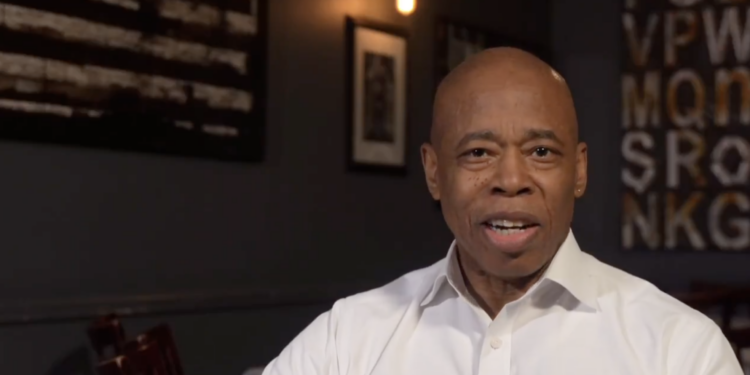New York City Mayor Eric Adams announced on Thursday, April 3rd, that he will skip the Democratic primary and run for reelection as an independent. In an exclusive interview with Politico, Adams stated his campaign would focus on ethnic communities, crucial to his 2021 victory. However, this decision raises questions about his commitment to these communities, especially considering the 84% drop in city advertising to ethnic and community media under his administration.
Adams’ announcement follows a turbulent period, including facing federal bribery and wire fraud charges—charges that were dismissed on April 2nd. With his legal battles behind him, Adams now positions himself on a platform of “independent leadership” free from party politics. He emphasized his commitment to working-class New Yorkers, particularly those outside Manhattan. In his campaign video, Adams stated, “I have always put New York’s people before politics and party — and I always will. I am running for mayor in the general election because our city needs independent leadership that understands working people.”
However, his focus on ethnic communities contradicts his record on ethnic media. Despite public statements, Adams has overseen a sharp decline in city advertising spending on ethnic media outlets, with an 84% decrease under his administration. This has led many to question how Adams plans to gain the support of these communities when his administration redirected advertising funds to larger corporations instead of local ethnic media businesses.
In the interview, Adams insisted his strategy would prioritize outreach to ethnic communities, which was key to his 2021 win. He stated that he would focus on “a solid base of people,” noting that his campaign would seek to tap into the concerns and issues that resonate with New Yorkers of diverse backgrounds. But critics argue that his actions tell a different story.
Several mayoral candidates in the Democratic primary, including Zellnor Myrie, Zohran Mamdani, and Brad Lander, have voiced strong support for ethnic media and committed to investing in these outlets. This contrast raises further doubts about Adams’ ability to win over ethnic communities, especially those who feel neglected by his administration.
Adams also noted that running independently would allow him to bypass the highly competitive Democratic primary, which he believes would be a difficult race given his current low approval ratings. As an independent, he needs only 3,750 petition signatures to appear on the general election ballot. Despite challenges, including limited campaign funds and strained relationships within the Democratic Party, Adams remains determined to press on.
As the race progresses, Adams’ commitment to ethnic communities will remain central to the debate. With ethnic media playing a critical role in mobilizing voters, his record of cutting funding to these outlets could prove a significant challenge in his bid for a second term. The unexpected shift in his strategy sets the stage for a historic election, but whether his approach to ethnic communities will resonate with voters is yet to be seen.










